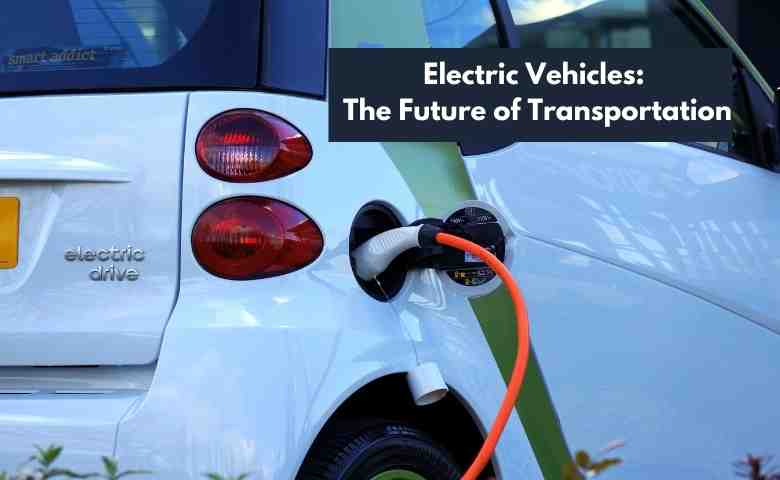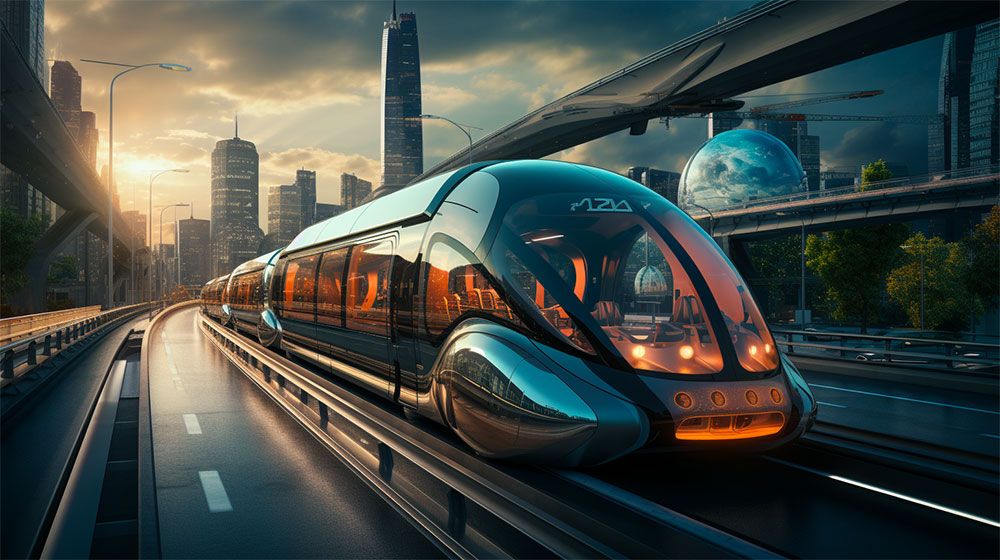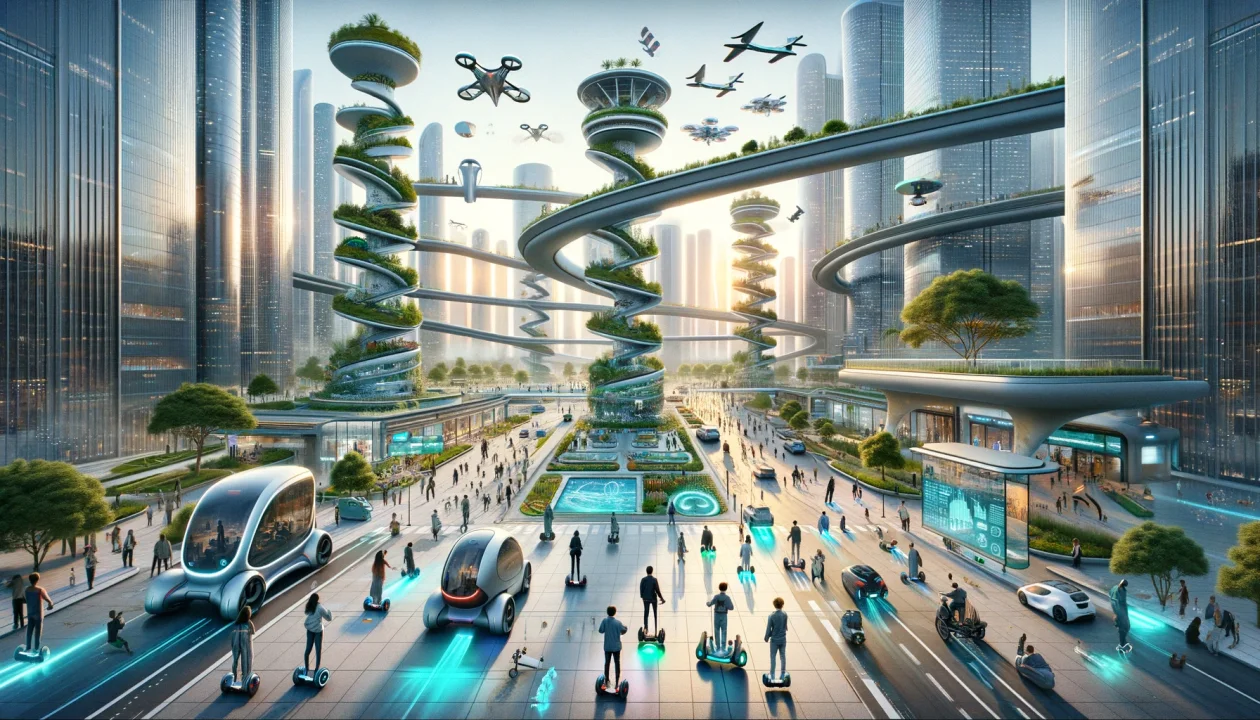The Future of Transportation: Transportation is undergoing a rapid transformation. With technological advancements, growing environmental concerns and urbanization, the future of transportation is set to become more efficient, sustainable and accessible. This article explores how innovations such as autonomous vehicles, electric transportation, Hyperloop systems, and smart infrastructure are shaping the future of mobility.
Autonomous Vehicles for Future of Transportation:
Autonomous vehicles (AVs), or self-driving cars, represent one of the most anticipated changes in the transportation landscape. Using artificial intelligence (AI), sensors and machine learning, AV aims to eliminate human error, which is responsible for most traffic accidents. Companies such as Tesla, Waymo and Uber have made significant advances in AV technology, and it is expected that fully autonomous cars could become mainstream in the coming decade.
The benefits of AVs extend beyond security. They offer improved traffic flow, lower emissions, and mobility possibilities for people unable to drive, such as the elderly and disabled. Also, autonomous taxis and ride-sharing services could revolutionize public transportation by making it more efficient and accessible. However, challenges remain, particularly in the areas of regulatory approval, cyber security and public acceptance.
Electric Transport for Future of Transportation:

As the world grapples with climate change and the need to reduce greenhouse gas emissions, electric transportation has emerged as a key solution. Electric vehicles (EVs) are at the forefront of this movement, offering a cleaner alternative to traditional internal combustion engine vehicles. With companies like Tesla, Nissan, and Chevrolet making mass-market electric cars, the adoption of EVs is increasing
One of the main drivers of this growth is the falling cost of lithium-ion batteries, which has made EVs more affordable. Governments around the world are encouraging EV adoption through subsidies, tax credits and development of charging infrastructure. In the future, electric transportation will likely expand beyond cars to include electric buses, trucks, and even electric airplanes, making the entire transportation ecosystem more sustainable.
Hyperloop for Future of Transportation:
The concept of Hyperloop transportation, first proposed by Elon Musk, is set to revolutionize long-distance travel. The Hyperloop system uses magnetic levitation to propel passenger pods through low-pressure tubes at speeds up to 700 mph. This technology promises to drastically reduce travel times between major cities, making it possible to travel from Los Angeles to San Francisco in just 30 minutes.
Several companies are currently building and testing prototypes, including Virgin Hyperloop and Hyperloop Transportation Technologies. Hyperloop could become a game-changer for intercity travel, offering a faster, more sustainable alternative to planes and trains. Its energy efficiency and use of renewable energy sources make it a green transportation option. However, large-scale implementation is still years away, as significant infrastructure investment is required.
Smart Infrastructure for Future of Transportation:

As transportation evolves, so does the infrastructure to support it. Smart infrastructure—cities equipped with sensors, data analytics, and connectivity—will play a critical role in the future of transportation. For example, smart traffic lights can dynamically adjust to traffic conditions, reducing congestion and improving vehicle flow.
Connected vehicles will communicate with each other and create safer and more efficient roads with infrastructure. Imagine a scenario where a car receives real-time information about an accident and automatically routes to avoid traffic. Smart infrastructure extends to public transport systems, including real-time tracking and optimization of bus and train schedules.
Emergence of shared mobility:
The rise of shared mobility services, such as ride-hailing apps (Uber, Lyft) and car-sharing platforms (Zipcar), is changing the way people think about car ownership. Many urban dwellers are moving away from owning private vehicles in favor of on-demand transportation services. This shift is expected to continue as more people recognize the benefits and cost savings associated with shared mobility.
The future will see the expansion of shared mobility services, with electric and autonomous vehicles providing the backbone of these networks. Micro-mobility options such as electric scooters and bikes will also become an integral part of urban transport systems, offering eco-friendly and convenient short-distance travel solutions.
Challenges and opportunities ahead:

Although the future of transportation is bright, it is not without challenges. Legal barriers, infrastructure investment, cyber security risks and public acceptance are all factors to consider. Additionally, as technology improves, the need to retrain workers increases, especially as older driving jobs disappear.
However, these changes provide many opportunities for innovation and economic growth. Authorities, companies and startups are investing heavily in research and development to create new generation transportation systems. Collaboration between the public and private sectors is key to a successful transition to this new form of transportation.
The future of transportation is set to be more efficient, sustainable and accessible than ever before. Autonomous vehicles, electric transportation, hyperloop systems, smart infrastructure, and shared mobility are just a few of the innovations changing the way we move. As these technologies mature and integrate into our daily lives, the possibilities for safer, faster and greener transportation are limitless.
Read Also: The Role of Technology in Shaping Global Politics and Economy
![]()






One thought on “The Future of Transportation”